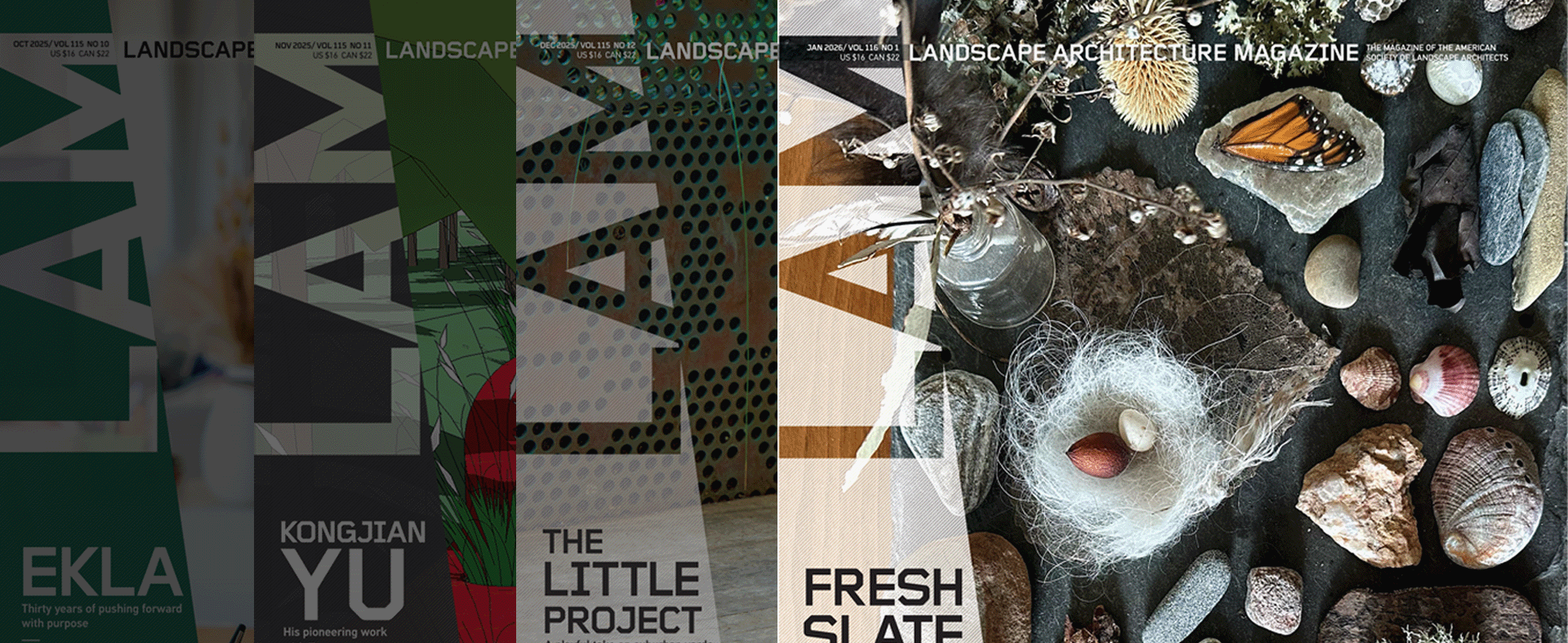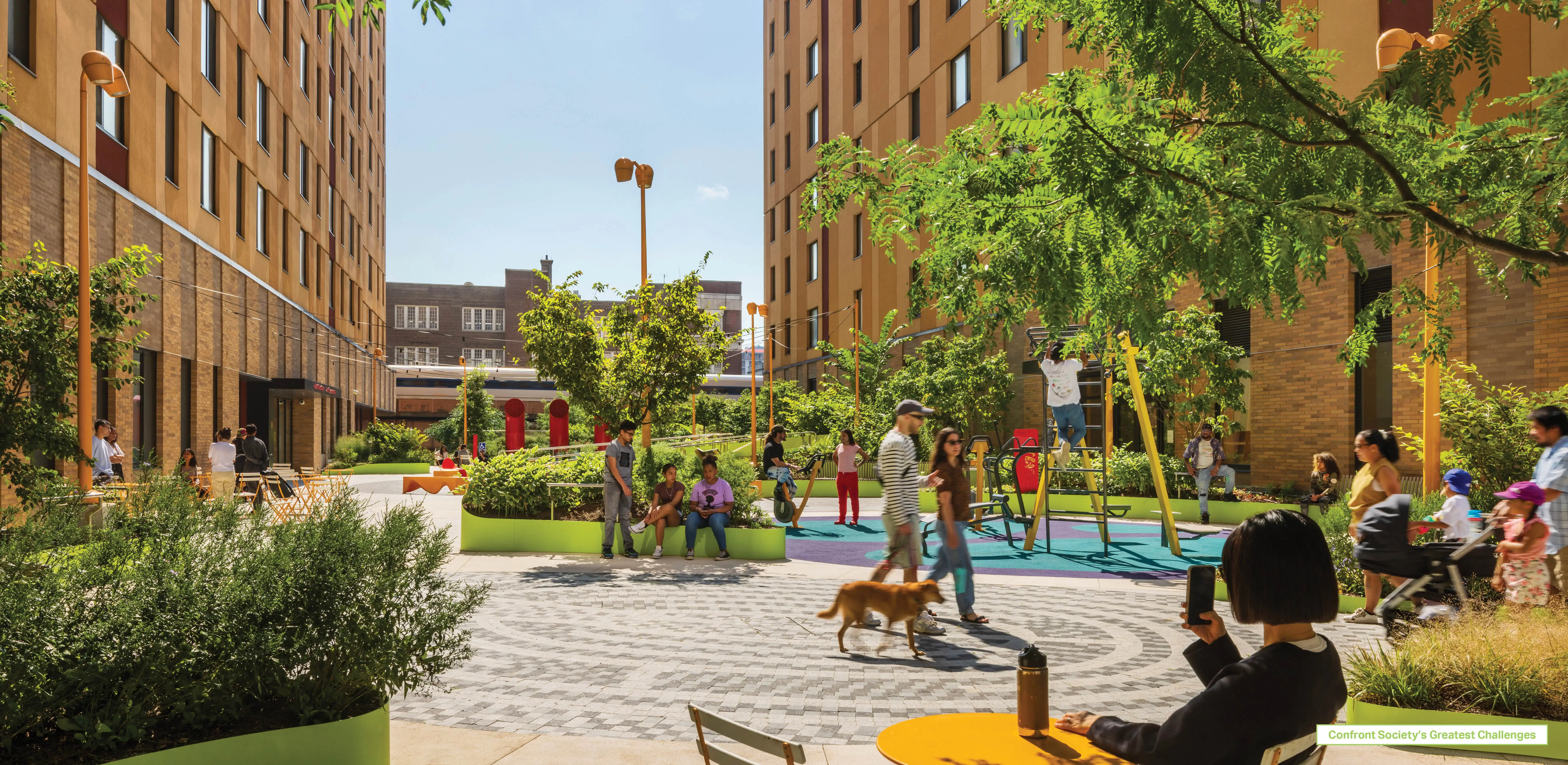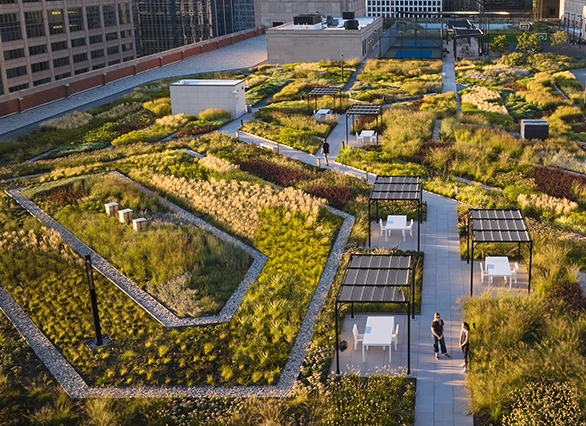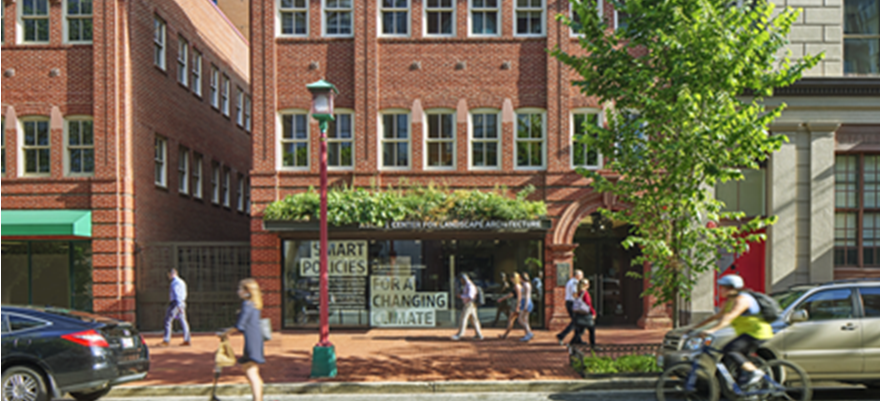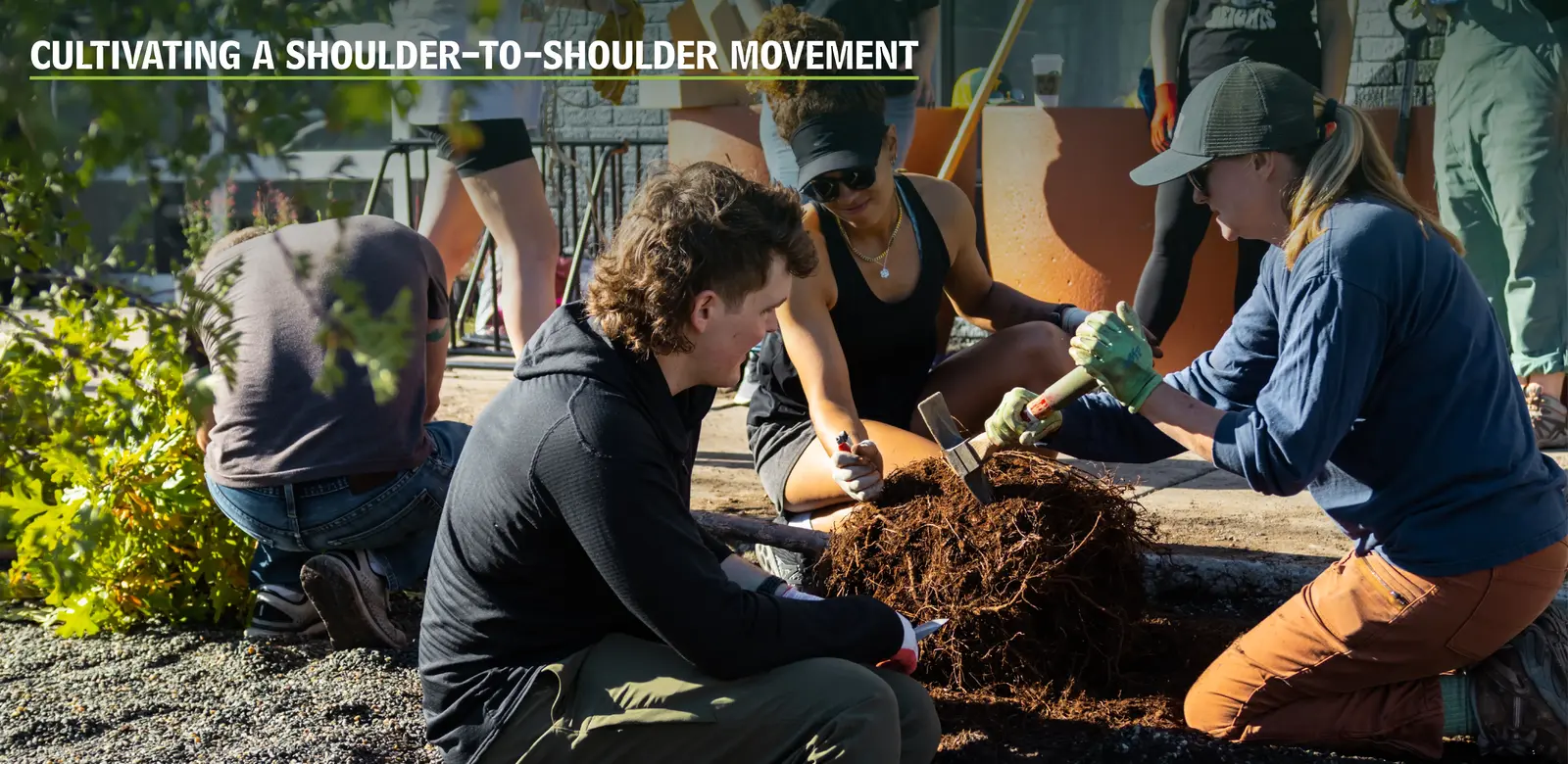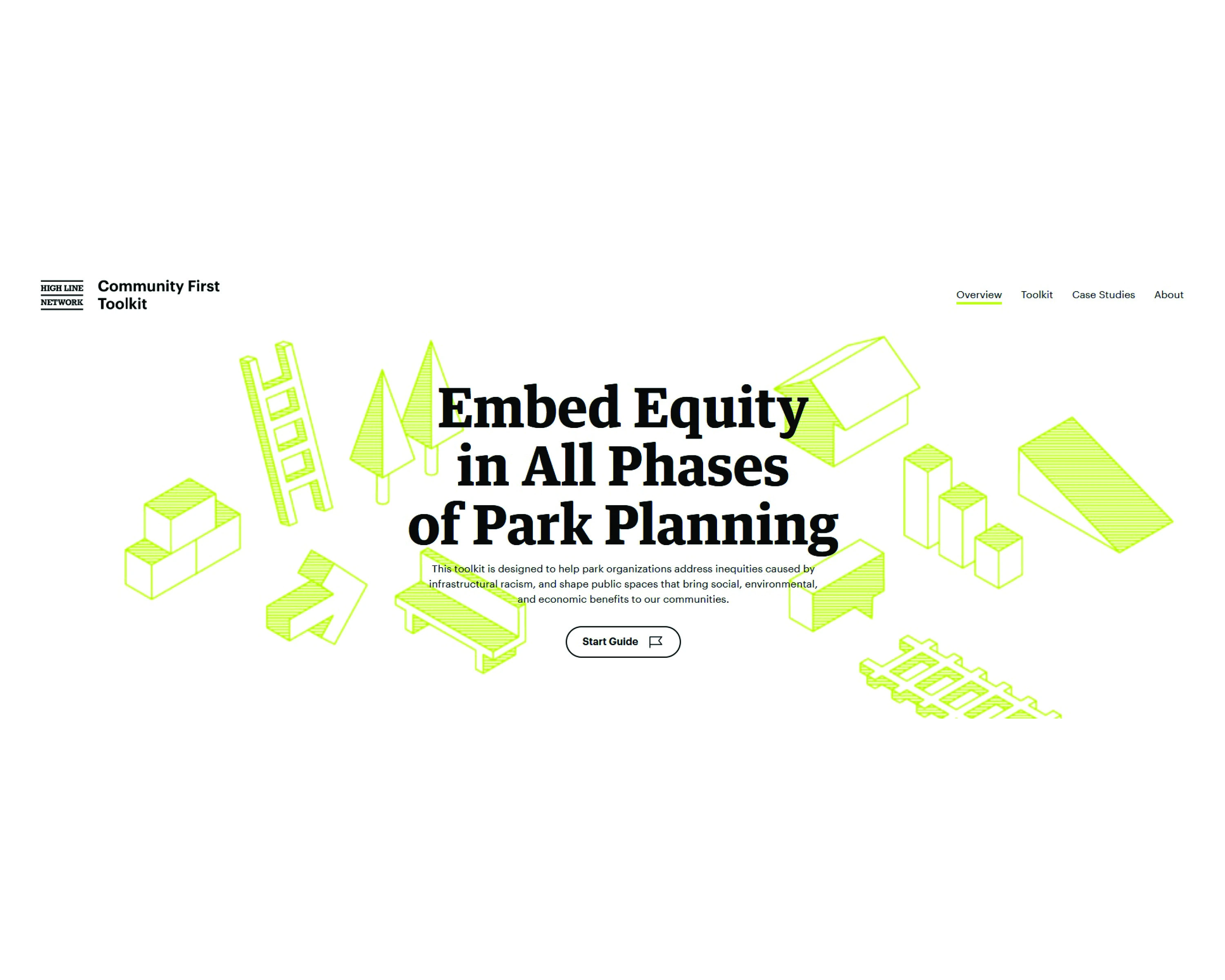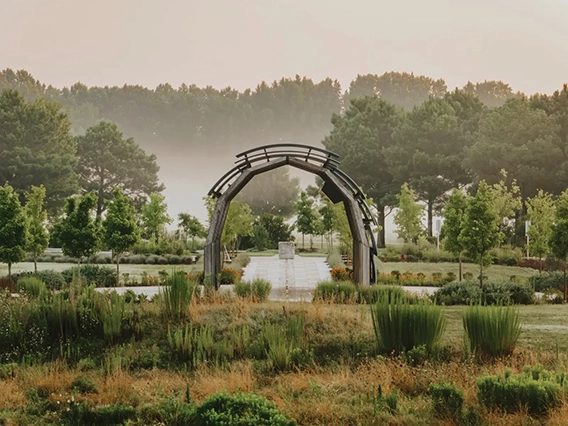Greening Five Points: Growing a Grassroots Movement in Denver
The jury was particularly impressed by the clarity and impact of the visuals, which not only communicated complex environmental challenges but also highlighted the strength and resilience of the Five Points community. The integration of personal testimonials added authenticity and emotional depth, transforming abstract policy goals into human-centered narratives.
This work serves as a replicable model for other neighborhoods seeking meaningful change. Its blend of accessible design, civic engagement, and ecological vision sets a new standard for how community infrastructure plans can be both inclusive and aspirational. The measurable outcomes described show that design can do more than imagine—it can mobilize.
Awards Jury
-
Coalescing community narrative power around a dynamic communications framework may fall outside of traditional landscape architecture scope of services, but it was exactly what Green Dot Coalition needed to propel their climate justice movement in Denver’s Five Points neighborhood. The Greening Five Points communications strategy spans social and traditional media, events, and demonstration projects. It amplifies voices from the climate frontlines and calls for equitable green infrastructure investment. With a diverse alliance of partners working with an entire community, Greening Five Points has transcended conventional project models for galvanizing community action, resulting in more green space, broad social change, and policy wins.
-
Nobody Is Listening
Five Points, a historic Black neighborhood in Denver, faces challenges from a history of discriminatory redlining and disinvestment. Today, it has the most impervious surface, fewest parks and trees, and worst air quality in Denver. In 2022, a group of determined Five Points business owners took matters into their own hands to add green infrastructure where the city failed to, forming the grassroots Green Dot Coalition (GDC).
Finding the Message
The GDC turned to a team of Landscape Architects (LA team) with a need to broadly communicate their green infrastructure vision. The LA team initiated a 10-week internship bringing together seven BIPOC (Black, Indigenous, and People of Color) landscape architecture students who worked closely with GDC and the Five Points community to create Greening Five Points, a document which articulates critical neighborhood challenges, residents' stories, and an adaptable framework for erecting nodes of community-implemented green infrastructure called “green dots”. The document immediately became a key tool for dialogue with residents and stakeholders. Shared across social media, Greening Five Points catalyzed a wave of community engagement with residents voicing a desire to bring the vision to life.
Seeing Is Believing
The team’s next step was to turn enthusiasm into action through hands-on demonstration projects that showed residents and business owners how to create green infrastructure spaces in the community. At initial planting events, more than 45 neighbors came together to break up concrete and plant trees. Community members resonated with the call to action and began adding their own “green dots” throughout Five Points.
With proof of concept and outcomes to share widely, the team created a short film, “For a Greener Denver,” which amplifies resident voices and urges investment in community-led resiliency solutions. The team organized a viewing party for neighbors, city officials, and grantmaking foundations. The event, and its social media coverage which generated over 10,000 views sparked critical dialogue with local decision makers.
Scaling the Movement
While individual projects matter, they alone cannot tackle the complexity of the climate crisis. Green Dot Coalition leveraged their message and initial on-the-ground efforts into two transformative grants to build a community green infrastructure stewardship model and youth workforce and advocacy program with Denver Public Schools—City Lab. The LA team is a primary partner in both grant efforts. In 2024, Denver’s Department of Transportation and Infrastructure—inspired by Green Dot Coalition’s continued advocacy and demonstration project success—announced that they are shifting 60% of their capital budget to a new Swift Implementation of Green Infrastructure program to rapidly install trees and green infrastructure in Denver’s underserved neighborhoods.
Working TOGETHER, Not FOR
When cities fail to invest in neighborhoods, designers must respond to community members. GDC was not a stakeholder for the LA team to consider; they were the client. Greening Five Points proves that Landscape Architects with nonprofit missions, as well as students, are well-positioned to co-lead collaborative processes that amplify community-voiced needs. When investment in neighborhoods is lacking, working directly for communities builds capacity that supports scaling, replication and expansion through robust communications.
-
- Robb Berg, FASLA - Design Workshop: Principal
- Sarah Konradi, ASLA - Design Workshop: Project Manager
- Ciara Knight - Design Workshop: Student Intern
- Christian Galindo - Design Workshop: Student Intern
- Selah Grant - Design Workshop: Student Intern
- Ivan Vazquez - Design Workshop: Student Intern
- Eneyda Salcedo - Design Workshop: Student Intern
- Dylan Smith - Design Workshop: Student Intern
- Gauri Patel - Design Workshop: Student Intern
- Clare Kavanagh - Design Workshop: Awards Submission Assistance
- Peter Samuels - Design Workshop: Awards Submission Assistance
- Sam Daniel - Design Workshop: Award Submission Assistance
- Brenda Rodriguez - Design Workshop: Award Submission Assistance
- Jevon Taylor - Green Dot Coalition Partner

.webp?language=en-US)
